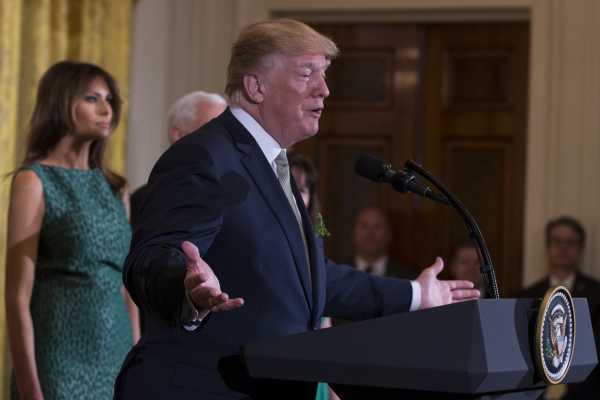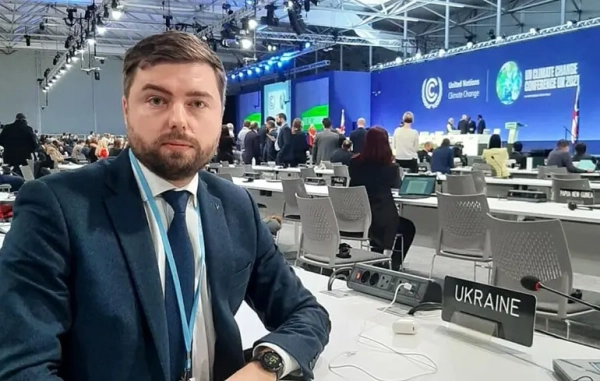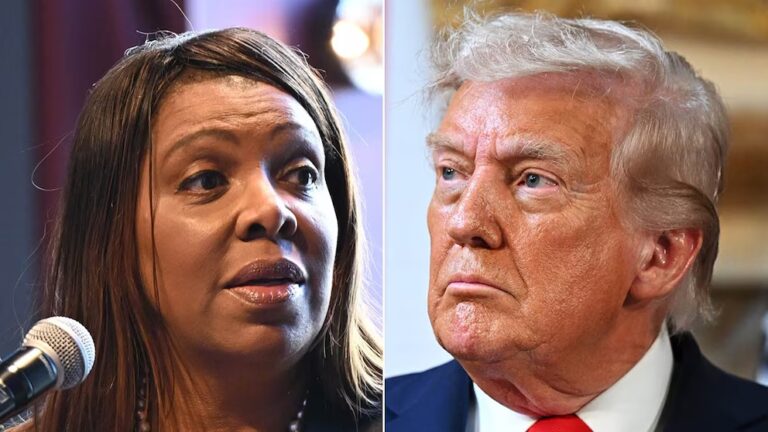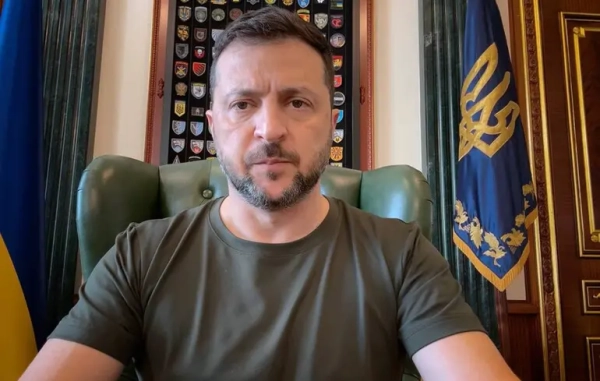
When Donald Trump fired FBI Deputy Director Andrew McCabe on a trumped-up pretext and then sent a series of tweets lambasting special counsel Robert Mueller and his team in dishonest terms, it sparked a new spasm of concern about the future of Mueller’s investigation.
People are right to worry about this. In particular, congressional Republicans ought to worry about it a lot more than they currently are, since sacking Mueller on impulse before the midterms would likely make it harder for them to maintain their majorities.
But the Mueller-centric focus obscures a much broader problem. Trump’s decision sends a message down the ranks to typical Justice Department attorneys to be wary about taking on Trump or his associates.
Trump has a lot of fingers in a lot of pies. So do his various family members and the B-list rich guys who round out his Cabinet. So do the wealthy individuals who are donating to his increasingly aggressive fundraising efforts. This creates a lot of potential points of intersection between Trump and his associates and the law — points of intersection that won’t necessarily involve anything as thrilling as Russian espionage, that certainly won’t be investigated by anyone as august as Mueller and his prosecutorial all-star team, and that aren’t being followed intensely by the news media.
This — in the halls of normal US attorneys’ offices and regulatory agencies — is where the real chilling effect of Trump’s war on the rule of law is likely to be felt. And an all-hands-on-deck drive to secure Mueller’s position risks simply affirming to officials tasked with enforcing the law in more banal ways that nobody is out there prepared to protect them.
The special counsel is special
Consider that Mueller’s situation is genuinely special.
Were he to be fired, it would be a huge national story with obvious political consequences. What’s more, there’s no good alternative to firing Mueller. You can’t quietly transfer him to the Alaska office or make his life miserable with tedious paperwork. He’ll investigate Trump right up until the day he is fired.
And if he does get fired, he and his team will have a big story to tell the press and an eager audience for it. The question will then become whether the voters care about a Trump action that amounts to an implicit admission of guilt.
Most important of all, neither Mueller nor the other senior members of his team have anything to lose personally in this. Mueller is an affluent retired former FBI director who took this gig because he wanted to investigate Trump. His team is composed of well-known, very successful litigators and investigators who wanted to be part of the investigation of the century. Obviously, none of them want to see the investigation shut down. But they have no reason to fear for their welfare or livelihood if it is, so they’re not going to pull any punches.
The real problem is that almost nobody else in the federal government enjoys that kind of freedom.
Prosecutors need to be able to investigate the president’s allies
US attorneys are appointed by the president of the United States, and obviously, some political consideration goes into their selection. But generally speaking, federal prosecutors do their work in a professional and nonpartisan manner. Early in Barack Obama’s term of office, federal investigators in Illinois charged Gov. Rod Blagojevich in a manner that was not only inconvenient to national Democrats but arguably cost them a blue Senate seat from 2011 to 2016. Later in Obama’s term, a federal case against Sen. Robert Menendez (D-NJ) wound up nearly costing Democrats a different blue Senate seat.
And there was nothing particularly unusual about this. One doesn’t even exactly need to believe that Obama or his predecessors were too pure of heart to interfere with federal investigations for partisan reasons — they were simply cautious.
To be seen as meddling in a federal investigation in that way would have been a huge scandal had it been uncovered, and traditionally, presidents have tried to avoid generating huge scandals.
But Trump, by firing McCabe and Comey on thin pretexts and then more or less immediately admitting that the pretexts were not the real reason, sends a powerful message: He doesn’t care. Everyone working in every federal agency in America knows that fear of being caught isn’t going to stop Trump from engaging in political meddling. If you look into malfeasance committed by a business he owns — or that his son-in-law owns, or one of his friends or donors or other associates — and he gets mad about it, he might stomp on you and not worry too much about the possibility of getting caught. And the mere fact that this is so obvious means the stomping doesn’t actually need to come from the West Wing at all.
Working toward the Donald
Part of the normal scandal aversion of a normal administration is that middle managers in the federal bureaucracy who sincerely support the president will try not to create a scandal. So it’s not just that Obama would not personally reach down into an investigation and meddle for political purposes, but a passionate Obama fan who also happens to run an Environmental Protection Agency field office wouldn’t do it either. The top leadership sets a tone, and while the tone isn’t universally followed, it does exert a big influence on people’s practical behavior.
Trump, by contrast, has sent a clear signal in the opposite direction — he wants federal public servants, up to and including FBI special agents, to act like they are his personal employees.
That doesn’t mean they’ll all do it — most of them won’t. But some of them will. The actual political appointees at every agency know what’s expected of them, and to the extent that there are ambitious and career-minded Trump fans scattered throughout the government — which is surely the case at the federal police agencies, if not the regulatory ones — they know that excessive service of Trump’s personal interests will be rewarded rather than punished. And folks who are merely career-minded will know that what’s good for them is to keep their heads down and just try to ride this out.
And these rank-and-file employees, critically, aren’t Robert Mueller. They have non-glamorous jobs that they may actually need to pay the rent and feed their families. They can be retaliated against in more subtle ways than a firing, and the news media won’t necessarily care about them or their stories.
Mueller mania lets Republicans off the hook
None of this is to deny the unique significance of Mueller and his investigation. But the narrow focus on preserving the integrity of that particular inquiry ends up setting the bar for Trump and the GOP too low. Ever since McCabe was fired, Republicans on Capitol Hill are mostly staying quiet, but a few, like Sen. Lindsey Graham of South Carolina, have spoken up to caution Trump not to fire Mueller.
That’s good as far as it goes. But it simply doesn’t go very far.
Nobody on the GOP side — not Graham, not John McCain, not Jeff Flake, and certainly nobody on the House side of things — has indicated any commitment to insisting that Trump uphold the rule of law overall or a general defense of the integrity and independence of federal law enforcement.
And yet it’s precisely here that the danger is greatest, of enforcement either being used selectively to punish Trump’s enemies or being ignored selectively to reward his friends. Normal leaders tread cautiously in this domain for fear of exposure, scandal, and political backlash. But Trump tends to operate on the principle that audacity will be rewarded and new scandals will always come along to crowd out old ones. It’s a scary approach to political leadership, and so far, it’s working pretty well.
Sourse: vox.com






